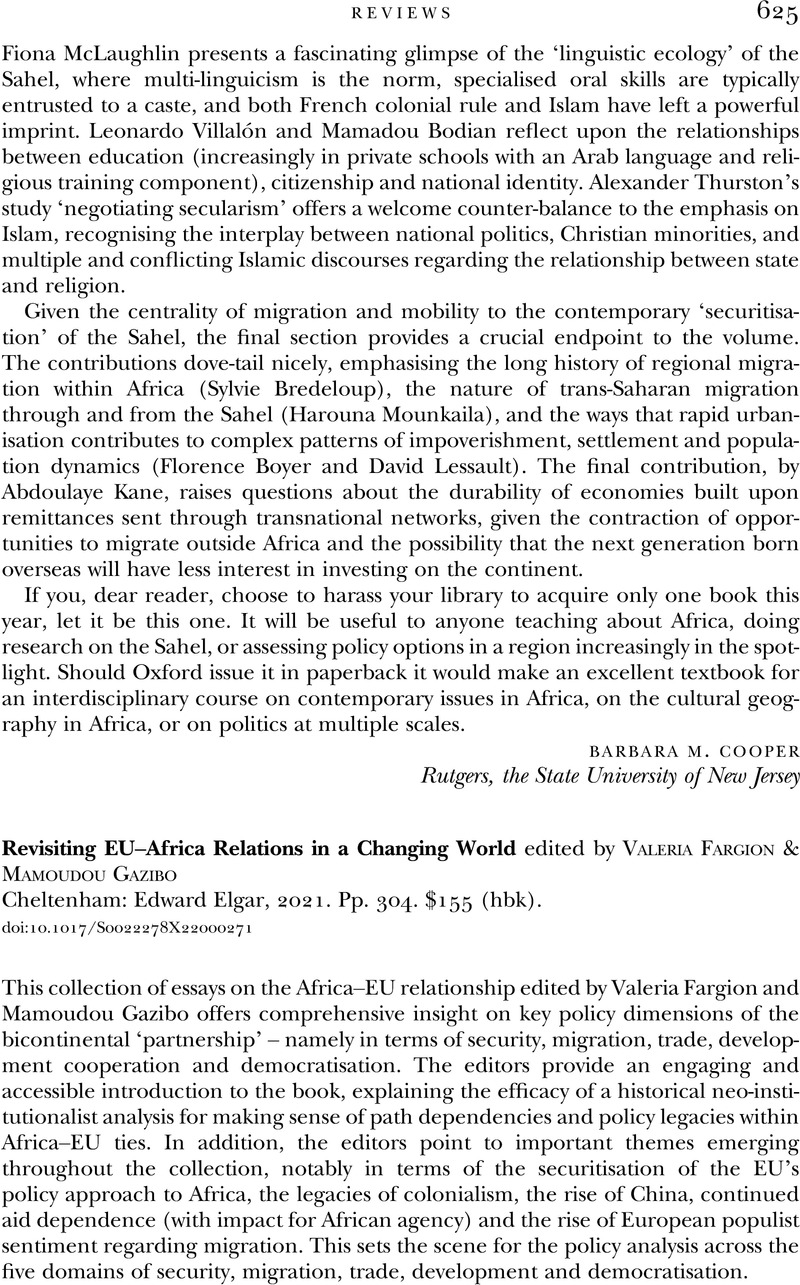No CrossRef data available.
Article contents
Revisiting EU–Africa Relations in a Changing World edited by Valeria Fargion & Mamoudou Gazibo Cheltenham: Edward Elgar, 2021. Pp. 304. $155 (hbk).
Review products
Revisiting EU–Africa Relations in a Changing World edited by Valeria Fargion & Mamoudou Gazibo Cheltenham: Edward Elgar, 2021. Pp. 304. $155 (hbk).
Published online by Cambridge University Press: 09 March 2023
Abstract
An abstract is not available for this content so a preview has been provided. Please use the Get access link above for information on how to access this content.

- Type
- Review
- Information
- Copyright
- Copyright © The Author(s), 2023. Published by Cambridge University Press



